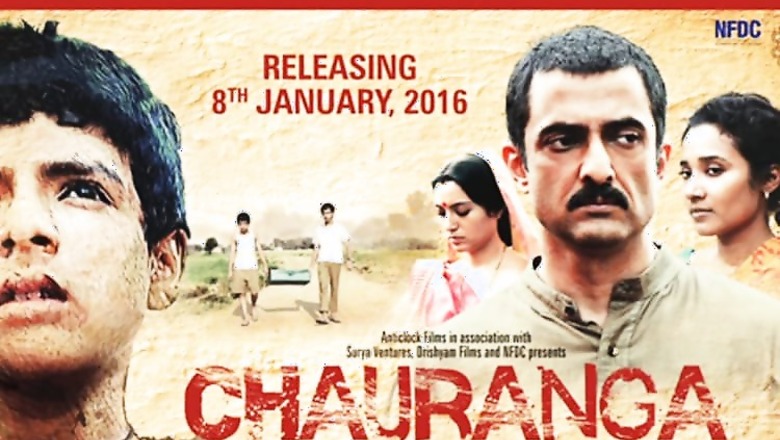
views
Chauranga, directed by debutant Bikas Mishra, holds a mirror to the ugly reality of the caste system…the violence and exploitation of the poor and the marginalized in a feudal society. Evocative of the many ‘art’ films from the 70s and 80s that addressed the same malaise (particularly Shyam Benegal's Nishant and Prakash Jha’s Damul), the film reveals how little has changed in all these years.
In an unnamed village in North India, a young Dalit boy Santu (Soham Maitra) bides his time watching trains pass by when he isn’t herding his family pig, or spying lovingly on Mona (Ena Saha), the daughter of the all-powerful landlord Dhaval (Sanjay Suri). Santu, as you can see, has a rebellious streak in him, unlike his submissive elder brother Bajrangi (Riddhi Sen) who dutifully pays obeisance to the landlord and puts up with routine beatings from upper caste bullies.
One of the more interesting characters in the film is the boys’ mother Dhaniya (Tannishtha Chatterjee), who works for the landlord and is having an illicit relationship with him. Although clearly a victim of exploitation, Dhaniya uses her sexuality to help negotiate a better life for her sons. Her character is in sharp contrast to the landlord’s own wife (Arpita Chatterjee), who is resigned to suffer silently and do his bidding. There’s also a lecherous blind village priest (Dhritiman Chatterjee), the very embodiment of evil in religious robes.
Against this landscape of entitlement, oppression and violence, Mishra offers the possibility of a love story. Bajrangi, when he learns of Santu’s crush on the landlord’s daughter, offers to write a love letter on his behalf. The result, as you may have guessed, is catastrophic.
Chauranga makes all the right noises about the dangers of a patriarchal society, sexual depravity among the religious class, and the need for education. But the film unfolds at such a languid pace, and its narrative is so disjointed (Censor cuts, were they?) you really have to fight yourself to stay invested in the story.
Life is cheap in these parts, and that point is illustrated effectively in a scene in which an outcaste boy falls into the temple well. The landlord, concerned only with purifying the water in the well, spares no thought for the fatally injured boy who may not make it.
But is it merely enough to hold a mirror? I was hoping Chauranga would express more outrage…that it might explore what happens when the oppressed challenge the status quo. That might be a film of our time. This, I’m afraid, we’ve seen before.
I’m going with two out of five.
Rating: 2 / 5
What's your reaction to 'Chauranga'?
Write your review:


















Comments
0 comment